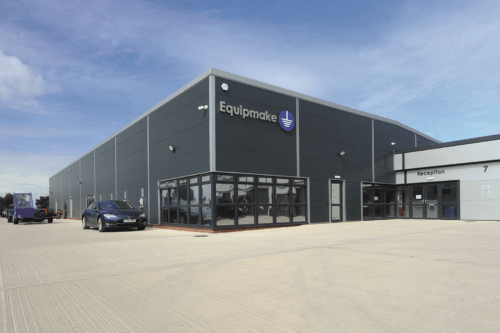
The next round of funding from the Scottish Zero Emissions Bus Challenge Fund (ScotZEB) will support rapid change in the Scottish bus market in favour of zero-emission technologies
Electrification specialist Equipmake has welcomed newly announced changes to the Scottish Zero Emissions Bus Challenge Fund (ScotZEB), which are set to include financial awards for companies which repower buses with electric drivetrains.
The Scottish Government ScotZEB scheme is designed to accelerate the transition to zero-emission buses in Scotland. Following on from first phase funding, which saw £62 million awarded to nine bus operators and local authorities for 276 buses and associated charging infrastructure, the scheme is now entering its second phase with more companies and technology suppliers becoming eligible.
Companies which offer repowering are now eligible to bid for financial support. With local authorities and public service bus operators eligible too, the newly announced ScotZEB changes indicate incentives will be available to reduce the purchase price of a repowered bus, enabling fleets to go electric more quickly and cost-effectively. ScotZEB Phase 2 will open for bids in spring 2023.
Ian Foley, CEO of Norfolk-based repower specialist Equipmake, said: “Repowering is an important and cost-effective transitionary technology that can bridge the gap between diesel and a new electric bus fleet. We welcome newly announced changes to ScotZEB Phase 2, which can play a vital role in making a repowered electric bus even more cost-effective for an operator and accelerating Scotland’s transition to a zero-emission bus fleet.”
Equipmake’s repower technology programme involves an inspection of each bus type to ensure its adaptability to its unique, scalable modular electric chassis. Once its suitability is verified, the process itself can be carried out with up to five repowers a week being completed, the firm says, ensuring a working bus is kept off the road for as short a time as possible.
Each repower is tailored to specific operator requirements, with service routes simulated to ensure the correct battery power level is selected for optimum performance and efficiency, and offers guaranteed driving ranges of 150 to 250 miles, which Equipmake says is more than sufficient for a complete duty cycle, allowing buses to be recharged overnight.
As well as bringing environmental benefits, Equipmake says its repower programme makes sense from a cost perspective, with each conversion said to cost less than half the price of a new electric bus. With most buses expected to remain in service for 14 years or beyond, operators can still make significant efficiencies by repowering a bus halfway through its working life, says the company.
Ian continued: “By repowering buses with electric power, the technology exists to bring cleaner air to towns and cities very rapidly indeed. The Scottish Government is to be praised for the changes to ScotZEB Phase 2 and we now call on the UK Government to outline an electric bus strategy that will see the purchase price of a repowered electric bus incentivised in England and Wales.
“The opportunity is clear for all to see. Repowering the drivetrains of existing buses with electric technology at scale can rapidly and dramatically reduce pollution and provide the UK bus industry with a much-needed shot in the arm. The UK Government must seize the initiative and make it happen. Contributing to conversions would be an ideal way of doing so.”


